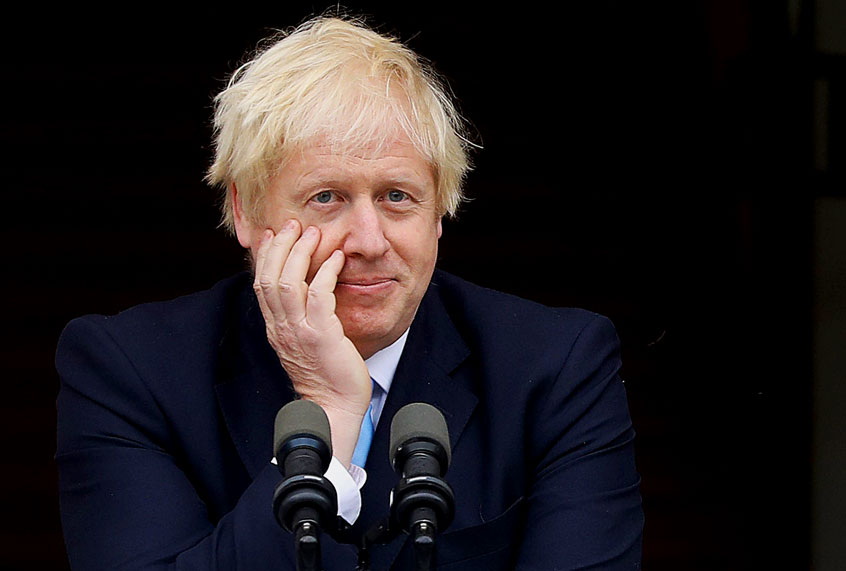After Queen Elizabeth II granted royal assent to legislation that would effectively bar a no-deal Brexit, British Prime Minister Boris Johnson made a second unsuccessful attempt to call a snap election before suspending Parliament.
The queen’s stamp of approval on the law presented Monday by the Lord speaker makes it impossible for Johnson to pull the U.K. out of the European Union without a divorce deal or the consent of Parliament to a no-deal Brexit, the latter of which is viewed by political analysts as very unlikely.
Johnson responded by moving forward with his plans to prorogue, or suspend, Parliament until Oct. 14, a longer period than usual and one that will allow Parliament little time to review any deal he could potentially strike with the EU during upcoming Brexit negotiations, according to CNN. Johnson delayed the suspension until he was able to appeal to members of Parliament once more to hold a snap election, a request which was made and rebuffed last week.
John Bercow, the speaker of House of Commons, said he plans to step down on Oct. 31.
“Throughout my time as speaker, I have sought to increase the relative authority of this legislature, for which I will make absolutely no apology to anyone, anywhere, at any time,” Bercow told MPs in a speech Monday.
He added, “To deploy a perhaps dangerous phrase, I have also sought to be the backbenchers’ backstop. This has been . . . the greatest privilege and honor of my professional life, for which I will be eternally grateful.”
Last week, Johnson told reporters that he would oppose any legislation barring him from a no-deal Brexit, because he felt it would limit his ability to negotiate with the EU.
“As we come to that Brexit deadline, I am encouraged by the progress we are making,” Johnson told reporters. “In the last few weeks ,the chances of a deal have been rising, I believe, for three reasons: They can see that we want a deal, they can see that we have a clear vision for our future relationship with the EU (something that has not always perhaps been the case) and they can see that we are utterly determined to strengthen our position by getting ready to come out regardless, come what may. But if there is one that can hold us back in these talks, it is the sense in Brussels that MPs may find some way to cancel the referendum or that tomorrow MPs will vote with Jeremy Corbyn for yet another pointless delay.”
He added, “I don’t think they will. I hope that they won’t. But if they do, they will plainly chop the legs out from under the U.K. position and make any further negotiation absolutely impossible. And so I say, to show our friends in Brussels that we are united in our purpose, MPs should vote with the government against Corbyn’s pointless delay. I want everybody to know there are no circumstances in which I will ask Brussels to delay. We are leaving on the 31st of October, no ifs or buts. We will not accept any attempt to go back on our promises or scrub that referendum.”


